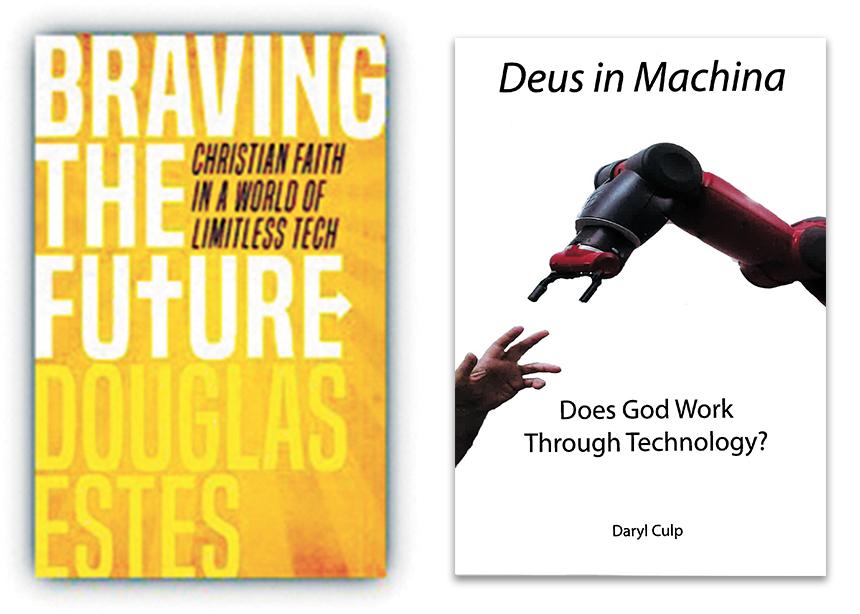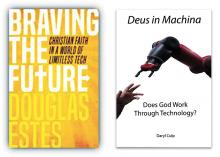How should Christians respond to the technology that seems to be taking over our lives? Should we welcome new technology as beneficial or should we be afraid of the future it will bring? Two new books, Braving the Future by Douglas Estes and Deus in Machina by Daryl Culp, explore these questions.
Estes, a former pastor and associate professor of New Testament at South University in South Carolina, recognizes the potential for harm in unlimited technology but he cannot hide how fascinated he is with technology’s possibilities. He makes several comments about how much our lives have been improved with scientific knowledge and writes, “I wish I could peer ahead and see the good that humanity will have achieved by the 22nd century.” He comes from a basic assumption that, while technology has the potential for negative consequences, it is generally positive.
Culp, who has a PhD in theology and teaches at Humber College in Toronto, is more doubtful. He recognizes that ever-expanding technology has provided benefits, but he is much more cautious about what the future will bring, and he raises more ethical concerns about the final results of such things as genetic experimentation and artificial intelligence. His basic premise is that, while technology can be beneficial, it needs to be used with care because of its great potential for harm.
While both books explore the topics of virtual reality, gene editing, artificial intelligence, intelligent robots, nanotechnology and cyborgs, Braving the Future describes each of these topics with greater detail. Estes also spends a chapter describing brain-computer interface and seems intrigued with the idea that someone’s character could be saved for posterity on a computer. He wishes he had access to his grandparents’ memories through electronic storage rather than only photographs.
Although the books express it in different ways, both authors see expanding technology as a quest to be like God. While Culp warns that we need to be aware of this flaw at all times, Estes sees it as more of a potential problem—people in the future might resort to faith in human technology rather than having faith in God. Both assert that ultimately it is God who is all-powerful.
At the end of his book, Estes admits, “The more we use technology and commit to technology, the more it makes us less human.” But he is captivated by technology and does not see it as an imminent danger. He looks forward to technological progress.
Culp writes with greater spiritual awareness and argues that technology actually changes how we relate to the world. He writes, “Technology separates us from our environment because it places us in a position of mastery.” He points out the importance of maintaining good human relationships.
Readers who are intrigued by the future of technology should find Estes’ book interesting because he is up on the latest technological marvels and writes in an easy-to-read style. Culp takes a more philosophical approach and asks deeper questions. Regarding the question about whether technology is good or bad, they generally agree that the answer is, “It depends.”




Add new comment
Canadian Mennonite invites comments and encourages constructive discussion about our content. Actual full names (first and last) are required. Comments are moderated and may be edited. They will not appear online until approved and will be posted during business hours. Some comments may be reproduced in print.